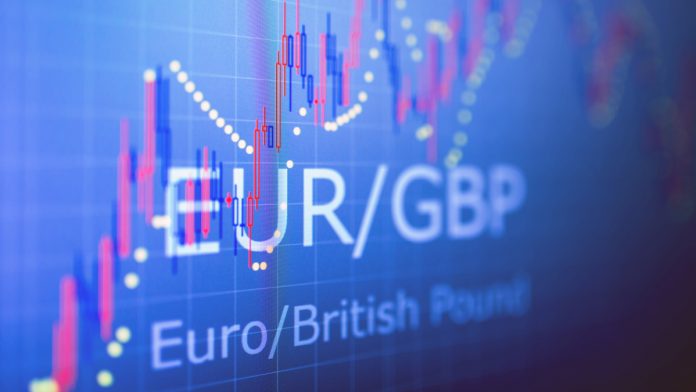The pound euro exchange rate finished Friday at approximately the same level that it started. In fact the pair concluded the week at more or less the same level that it started at €1.1232.
| What do these figures mean? |
|---|
| When measuring the value of a pair of currencies, one set equals 1 unit and the other shows the current equivalent. As the market moves, the amount will vary from minute to minute. If the euro amount increases in this pairing, it’s positive for the pound. Or, if you were looking at it the other way around:1 EUR = 0.87271 GBPIn this example, €1 is equivalent to approximately £0.87. This measures the euro’s worth versus the British pound. If the sterling number gets larger, it’s good news for the euro. |
The pound was under pressure in the previous week as Brexit anxiety lingered when the Conservative leadership battle heated up. Matt Hancock, a more centrist candidate, withdrew from the race ahead of the weekend, whilst pro-Brexit Boris Johnson stormed ahead in the first round of votes. Hard line pro-Brexit Boris emerging as the clear leader has pound traders concerned over the increasing prospect of a no deal Brexit.
Demand for the pound could remain weak across the coming week as investors look towards UK inflation figures, retail sales and the Bank of England (BoE) monetary policy announcement on Thursday. Analysts are expecting inflation to tick lower to 2% in May, down from 2.1%. They also expect retail sales to have declined by 0.8% in May.
Signs of a slowing economy could put pressure on BoE policy makers to adopt a more cautious tone towards policy. Furthermore, the BoE base case scenario is a smooth Brexit with a deal in place. With signs that Boris Johnson is in first place to take over a prime minister, there could be a strong case for the BoE is start assuming that a smooth Brexit might not be the base case scenario.
| Why is a “soft” Brexit better for sterling than a “hard” Brexit? |
|---|
| A soft Brexit implies anything less than UK’s complete withdrawal from the EU. For example, it could mean the UK retains some form of membership to the European Union single market in exchange for some free movement of people, i.e. immigration. This is considered more positive than a “hard” Brexit, which is a full severance from the EU. The reason “soft” is considered more pound-friendly is because the economic impact would be lower. If there is less negative impact on the economy, foreign investors will continue to invest in the UK. As investment requires local currency, this increased demand for the pound then boosts its value. |
ECB Forum & Eurozone Appointments In Focus
The euro is moving into a key week on the back foot. It is not economic data that will take centre stage for the euro this week, but instead a number of decisive events. Firstly, there is the ECB forum in Sinta, Portugal. Here central banker officials will analyse the current economic climate. They are expected to discuss whether the eurozone requires additional monetary stimulus. Whilst no formal announcement will be made, investors will be watching closely for any commentary.
| Why do raised interest rates boost a currency’s value? |
|---|
| Interest rates are key to understanding exchange rate movements. Those who have large sums of money to invest want the highest return on their investments. Higher interest rate environments tend to offer higher yields. So, if the interest rate or at least the interest rate expectation of a country is relatively higher compared to another, then it attracts more foreign capital investment. Large corporations and investors need local currency to invest. More local currency used then boosts the demand of that currency, pushing the value higher. |
Later in the week investor attention will turn towards a meeting between EU heads of state. They will convene to fill upcoming leadership vacancies — including that of the European Central Bank President. Market participants’ favourite is Finnish Erkki Liikanen as front runner and moderate but steady hand.
This publication is provided for general information purposes only and is not intended to cover every aspect of the topics with which it deals. It is not intended to amount to advice on which you should rely. You must obtain professional or specialist advice before taking, or refraining from, any action on the basis of the content in this publication. The information in this publication does not constitute legal, tax or other professional advice from TransferWise Inc., Currency Live or its affiliates. Prior results do not guarantee a similar outcome. We make no representations, warranties or guarantees, whether express or implied, that the content in the publication is accurate, complete or up to date. Consult our risk warning page for more details.
This article was initially published on TransferWise.com from the same author. The content at Currency Live is the sole opinion of the authors and in no way reflects the views of TransferWise Inc.





